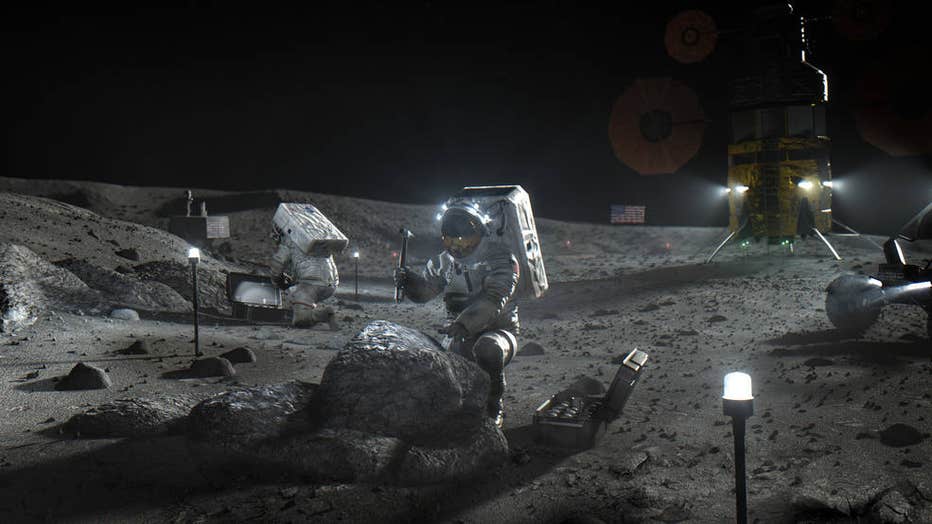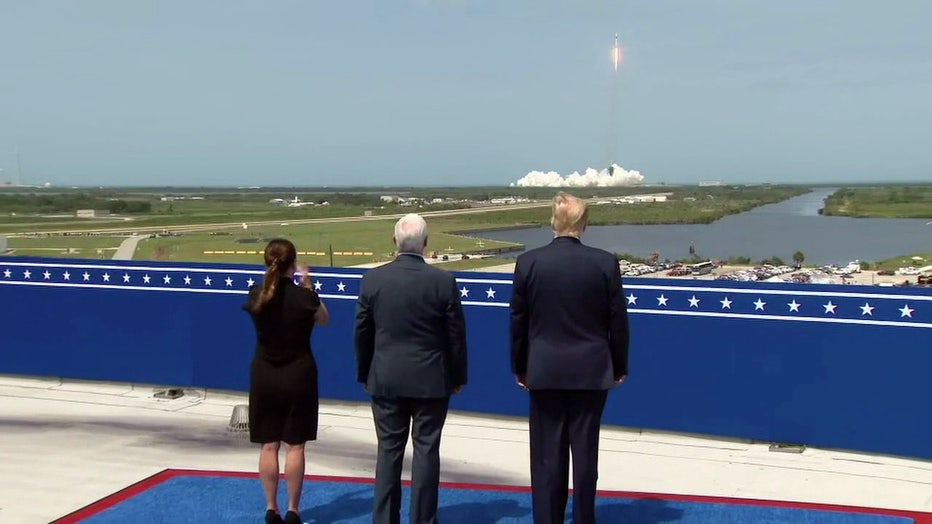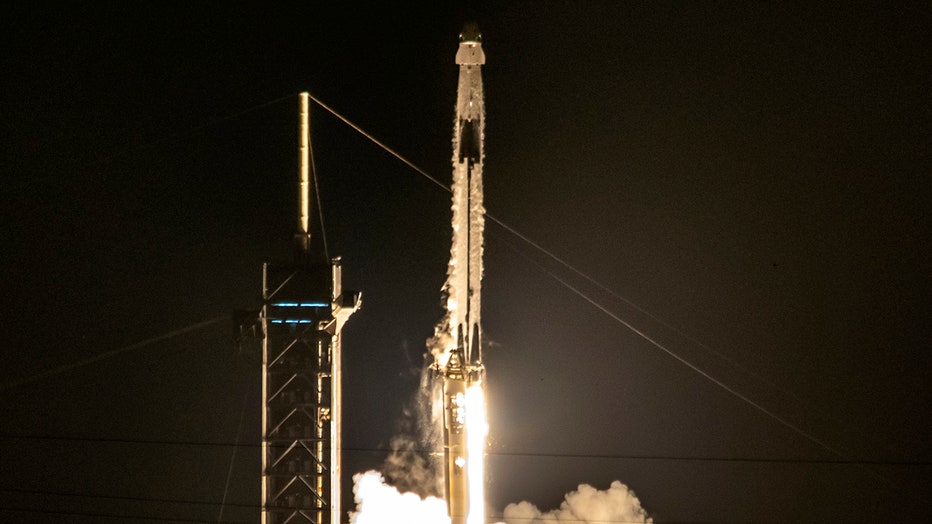What are President-elect Biden's plans for NASA?
TAMPA, Fla. - NASA has gone through a series of changes in the past 10 years. President George W. Bush ordered the retirement of the space shuttle; President Obama followed it through and cratered the Space Coast’s economy.
A nation that beat the Soviets to the moon had to depend on the Russians to taxi astronauts into low-earth orbit. But President Obama led the transition to the next leap, partnering with private industry to focus on low-earth orbit while NASA set its sights for deep space exploration.
2014 brought the first test flight of Orion, the program to take us back to the moon and onto Mars. President Trump followed it through and accelerated the timetable.
The Trump administration committed to sending a man and woman back to the moon by 2024, before the Lunar Gateway, the docking station that will orbit the moon, will be in place.

Illustration of Artemis astronauts on the Moon. (Photo Credit: NASA)
"We have every reason to believe that with the new partnerships we forge, not just SpaceX but other commercial companies, that we’ll be able to meet that deadline or maybe even beat that deadline," Vice President Mike Pence told FOX 13. "And by setting a goal of returning to the moon by 2024, establishing a permanent base there and using that as a launching point to send Americans to Mars."
RELATED: NASA details how $28B will be spent to return astronauts to the moon in 2024
The goal is to mine ice buried below the moon, convert it to fuel, and make the lunar-base a rest-stop and a launching pad.

President Trump was at Kennedy Space Center to witness SpaceX's first crewed launch in May.
"The moon will be just our first stop in human space exploration, and our determination, to set into motion to put an American astronaut on the surface of Mars," Pence continued.
On the campaign trail, President-Elect Biden promised to be a strong supporter of NASA and step up the federal commitment to space travel.
"[NASA] is the answer to so many potential opportunities we have," Biden said. "When John Kennedy said we went to the moon, he answered the unasked question – why? Because we refuse to postpone. We should not postpone exploration. We should not postpone anything. It’s a way for us to move forward."
But it’s not clear what forward means with the coming change of administration. Biden did not commit to maintaining the Trump administration’s programs and timelines.
"I don’t trust anything Trump has done so I want to see myself exactly what the programs are. He hasn’t really explained them very much to the public at large," Biden said. "But there will be increased funding for NASA, I can guarantee you that."

SpaceX twice launched astronauts to the space station in 2020, including this launch last month.
RELATED: World's space achievements a bright spot in otherwise stressful 2020
Based on the success of the SpaceX’s manned launches to the space station, Biden will likely maintain NASA’s partnership with the private sector
Based on international contracts and Biden’s prior statements, he will likely maintain our plans for crewed flights to the moon and later Mars.
But he could push back Trump’s goal of a crewed mission to Mars by the 2030s and ramp up Earth-observation missions, especially given his commitment to addressing climate change.
Biden will also review the Trump administration’s decision to launch a military division called Space Force. Central Florida is currently one of the finalists to land the Space Force headquarters.


